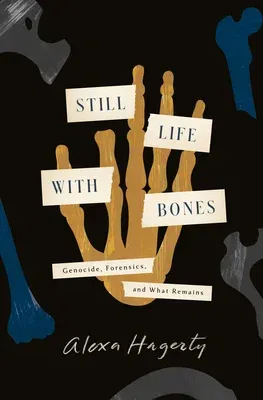An anthropologist working with forensic teams and victims' families to
investigate crimes against humanity in Latin America explores what
science can tell us about the lives of the dead in this haunting account
of grief, the power of ritual, and a quest for justice.
"Absorbing . . . multifaceted and elegiac . . . Still Life with
Bones captures the ethos that drives the search--often tireless and
against the odds--for truth."--The New York Times
"Exhumation can divide brothers and restore fathers, open old wounds
and open the possibility of regeneration--of building something new with
the 'pile of broken mirrors' that is memory, loss, and mourning."
Throughout Guatemala's thirty-six-year armed conflict, state forces
killed more than two hundred thousand people. Argentina's military
dictatorship disappeared up to thirty thousand people. In the wake of
genocidal violence, families of the missing searched for the truth.
Young scientists joined their fight against impunity. Gathering evidence
in the face of intimidation and death threats, they pioneered the field
of forensic exhumation for human rights.
In Still Life with Bones, anthropologist Alexa Hagerty learns to see
the dead body with a forensic eye. She examines bones for marks of
torture and fatal wounds--hands bound by rope, machete cuts--and also
for signs of identity: how life shapes us down to the bone. A weaver is
recognized from the tiny bones of the toes, molded by kneeling before a
loom; a girl is identified alongside her pet dog. In the tenderness of
understanding these bones, forensics not only offers proof of mass
atrocity but also tells the story of each life lost.
Working with forensic teams at mass grave sites and in labs, Hagerty
discovers how bones bear witness to crimes against humanity and how
exhumation can bring families meaning after unimaginable loss. She also
comes to see how cutting-edge science can act as ritual--a way of caring
for the dead with symbolic force that can repair societies torn apart by
violence.
Weaving together powerful stories about investigative breakthroughs,
histories of violence and resistance, and her own forensic
coming-of-age, Hagerty crafts a moving portrait of the living and the
dead.

